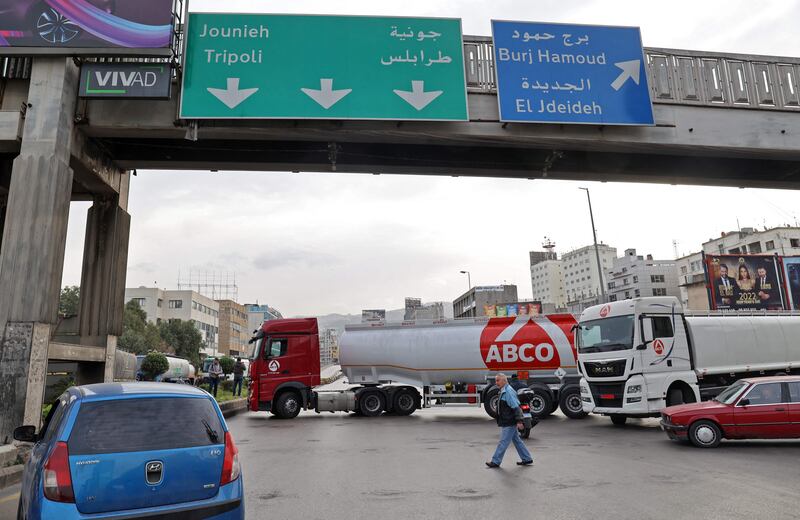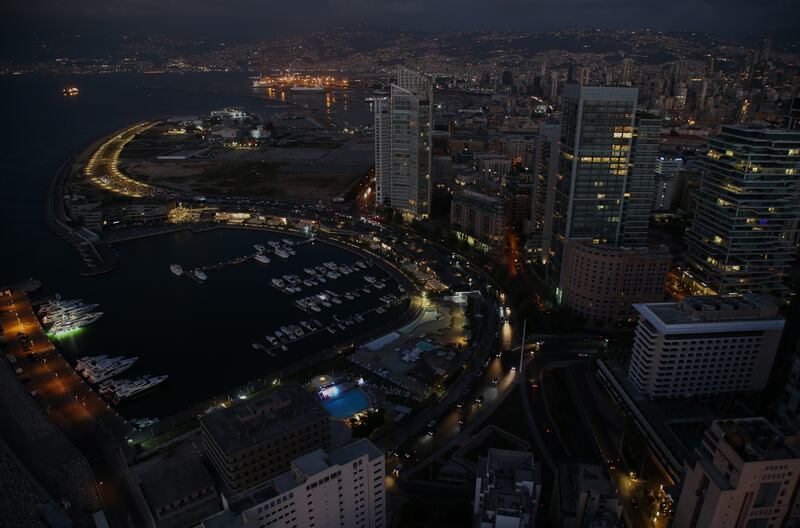Internet services were disrupted in Lebanon on Sunday because of diesel shortages, the state provider said, adding another essential service to the list of casualties of the country’s economic crisis.
Imad Kreidieh, the head of state internet provider Ogero, tweeted that a major station in west Beirut, Al Mazraa, would run out of diesel and go offline early on Sunday.
The interruption affected over 26,000 subscribers, including the country’s General Security operation rooms, he told Al Jadeed TV.
By midday on Sunday, a resident donated diesel, allowing the station to get back online, he said. Another neighbourhood in east Beirut, Achrafieh, was out of diesel and operating on batteries.
“The situation is unbearable,” Mr Kreidieh told the TV station.
Lebanese live with only a few hours of state electricity a day and rely on a network of private generators that also depend on diesel fuel. This often leaves neighbourhoods in total darkness for hours.
Residents have to pay for multiple services, including hefty bills to generator operators, which change regularly as the crisis worsens.
Internet and telecom services were expensive in Lebanon even before the current crisis. In 2019, a tax imposed on WhatsApp services sparked nationwide protests that turned into a denunciation of the entire political elite.
The import-dependent country is also suffering from a shortage of medicines, leaving patients dependent on medicines smuggled on the black market and donations from Lebanese expatriates and civil groups.
Lebanon is in the throes of the worst financial and economic crisis in its history that has sunk the once middle-class country into poverty.
The crisis is rooted in years of political corruption and mismanagement. Lebanon is running out of foreign reserves and has gradually lifted subsidies on essential goods, including fuel and medicines.
But the government has yet to implement a social safety programme or draft a recovery plan that are essential to negotiate with the International Monetary Fund.
The crisis caused the national currency to lose more than 90 per cent of its value, while banks, fearing bankruptcy, have limited people’s access to their deposits in local and foreign currency. Meanwhile inflation has soared and prices increased.
The state-owned and other telecommunication companies complain that they are unable to keep up with rising operational costs, including fuel.
“I will not agree to continue in this post unless I have all the authorities and tools to do my job,” said Mr Kreidieh.
He blamed the service interruption in west Beirut on a civil servant who didn’t sign a piece of paper on time to allow him to buy diesel. Amid the crisis, many public sector workers have gone on strike, demanding their salaries be adjusted to rising inflation and a collapsing currency.
Mr Kreidieh said internet service was also affected outside of Beirut.












